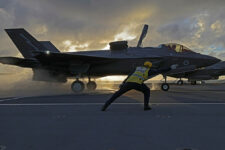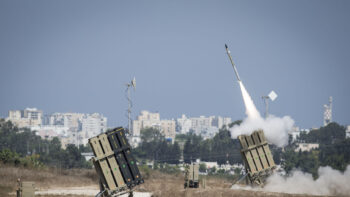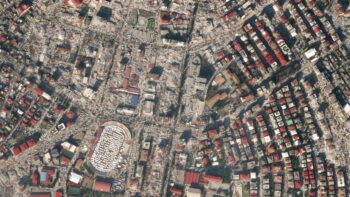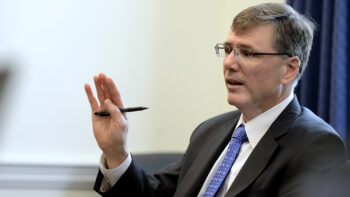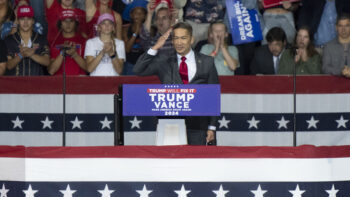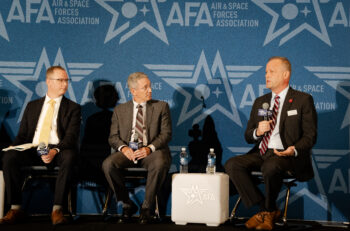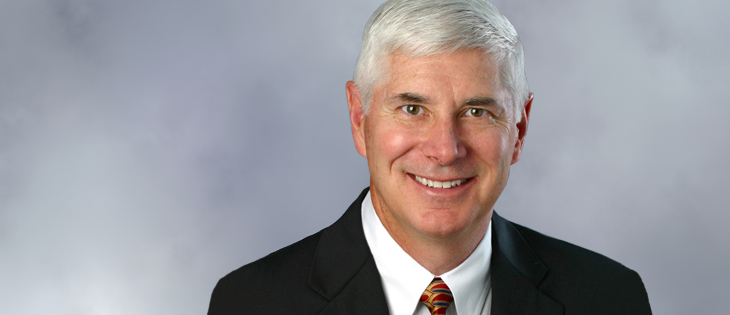
David Melcher
PARIS AIR SHOW: As much as I tried to give David Melcher slack to say the powerful Aerospace Industries Association he leads was finding it more difficult to do business under the chaotic and oft-bewildering Trump administration, he kept saying things were pretty well in hand.
“The first year of an administration is certainly more difficult than the last year of an eighth-year second term president’s administration,” he said in the AIA chalet, showing the long view of a seasoned Washington operative. “We went from an environment where we had all the principals in place and the ability to have great interaction for defense, space and FAA and Department of Transportation. Now you really have the top of the house in position, but below that it’s been a little slow in the nominations and the confirmations of political appointees.”
But, he says, “we’ve kept a pretty good continuity of dialogue.” Using Congress as an example, he said AIA had met with each of the 63 new members of the House and Senate after the November elections. To make sure they knew the full extent of the aerospace industry’s influence in their district, maps were sometimes deployed to help show where the jobs are and just how many there are. And, of course, AIA has continued talking with the permanent civil servants who actually execute policy throughout the transition.
But what about the Trump Administration’s continued banging on NATO members to pay up — even though they have until 2024 to do so by our own agreement with them — and the apparent isolationism and trade protectionism of Trump’s commitment to America First? Is that making his job tougher?
“Our interpretation of America First is, let’s be first in great capabilities; let’s be first in American sales. Let’s take advantage of the opportunities there,” Melcher says.
In the meantime, AIA would like to see something we haven’t a heard a peep from them about yet. “We need…a security cooperation reform agenda, to make sure we are letting our companies have an opportunity here,”,” says Melcher. He thinks the aerospace exports business can “double” the $90 billion trade surplus it shows on $146 billion of international sales. The specific restraints on defense exports he cites are the usual ones: ITAR and the MTCR (Missile Technology Control Regime).
The good news, from AIA’s point of view, is that the Trump Administration is listening. Melcher cites the various panels on trade and regulatory reform that Jared Kushner is leading and notes that eight AIA CEOs are on them so, “we have a conduit for these conversations. That,” he notes, “was not the case in the last administration.”
Rafael, Kratos team to produce solid rocket motors as Prometheus Energetics
The two firms become the latest entrant in the solid rocket motor business, which has boomed since the war in Ukraine began.






